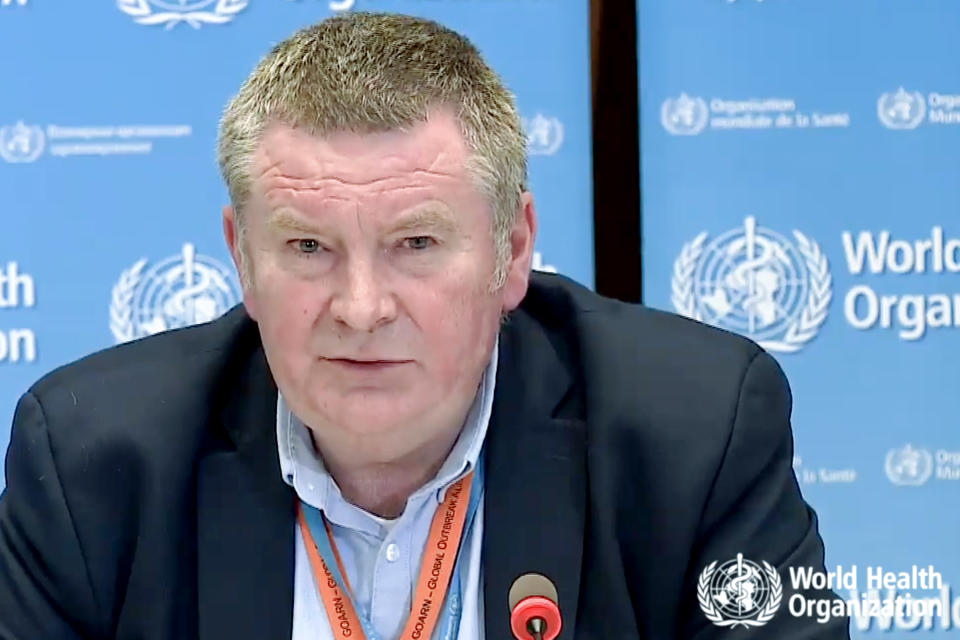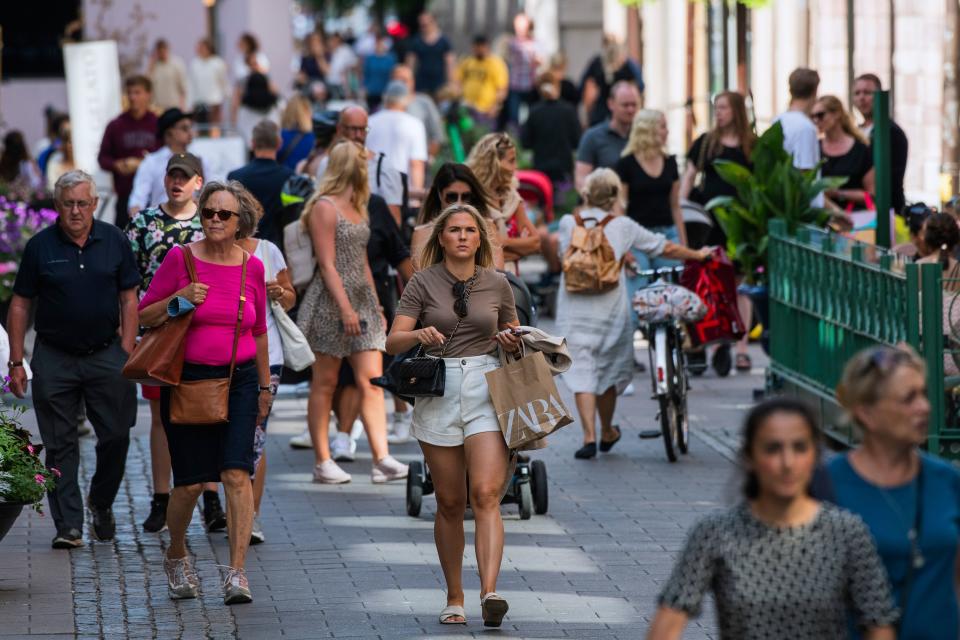World is 'nowhere near' herd immunity to coronavirus, warns WHO
The planet is nowhere near achieving herd immunity to coronavirus, the World Health Organization (WHO) has said.
The head of its health emergencies programme, Dr Michael Ryan, dismissed the theory at a press briefing in Geneva, Switzerland, on Tuesday.
He said the world is not close to the amount of COVID-19 immunity needed to induce herd immunity.
It is typically achieved with the aid of vaccination and scientists estimate that at least 70% of the population must have antibodies to prevent an outbreak.

Dr Ryan said the world should not live “in hope” of achieving herd immunity to coronavirus.
“As a global population, we are nowhere close to the levels of immunity required to stop this disease transmitting,” he said.
“This is not a solution and not a solution we should be looking to.”
Studies conducted so far suggest only about 10% to 20% of people have antibodies.
Senior WHO adviser Dr Bruce Aylward said any mass immunisation campaign with a COVID-19 vaccine would aim to cover far more than 50% of the world’s population.
He said: “We don’t want to be wrong. You want to plan to get high coverage and not get lulled into a dangerously seductive suggestion that (the herd immunity threshold) could be low.”
In March, before it introduced its lockdown, the UK government was forced to abandon its plan for Britons to develop herd immunity to COVID-19, amid warnings from the WHO that urgent action was needed.
In Sweden, a more relaxed approach was taken by the government during the pandemic, with society allowed to remain largely open.
However, a report published last week in Journal of the Royal Society of Medicine revealed that Sweden had failed to achieve herd immunity.
Authorities there hoped that up to 40% of the people of Stockholm would get the disease and develop antibodies, but the actual figure was about 15%, the study showed.
According to Johns Hopkins University, there have been more than 85,000 coronavirus cases in Sweden and 5,790 deaths.
The WHO also warned that the current spread of coronavirus was being driven by people in their 20s, 30s and 40s.

It said the proportion of younger people among those infected had risen globally, putting the elderly and sick people at risk.
"The epidemic is changing," said the WHO’s western pacific regional director, Takeshi Kasai.
"People in their 20s, 30s and 40s are increasingly driving the spread. Many are unaware they are infected."
"This increases the risk of spillovers to the more vulnerable.”
On Sunday, the WHO reported there had been more than 267,000 new cases of coronavirus worldwide in a 24-hour period.
Of those new cases, 63,000 were in India, 55,000 were in the US and 50,000 in Brazil.
Coronavirus: what happened today
Click here to sign up to the latest news and information with our daily Catch-up newsletter

 Yahoo Sports
Yahoo Sports 

